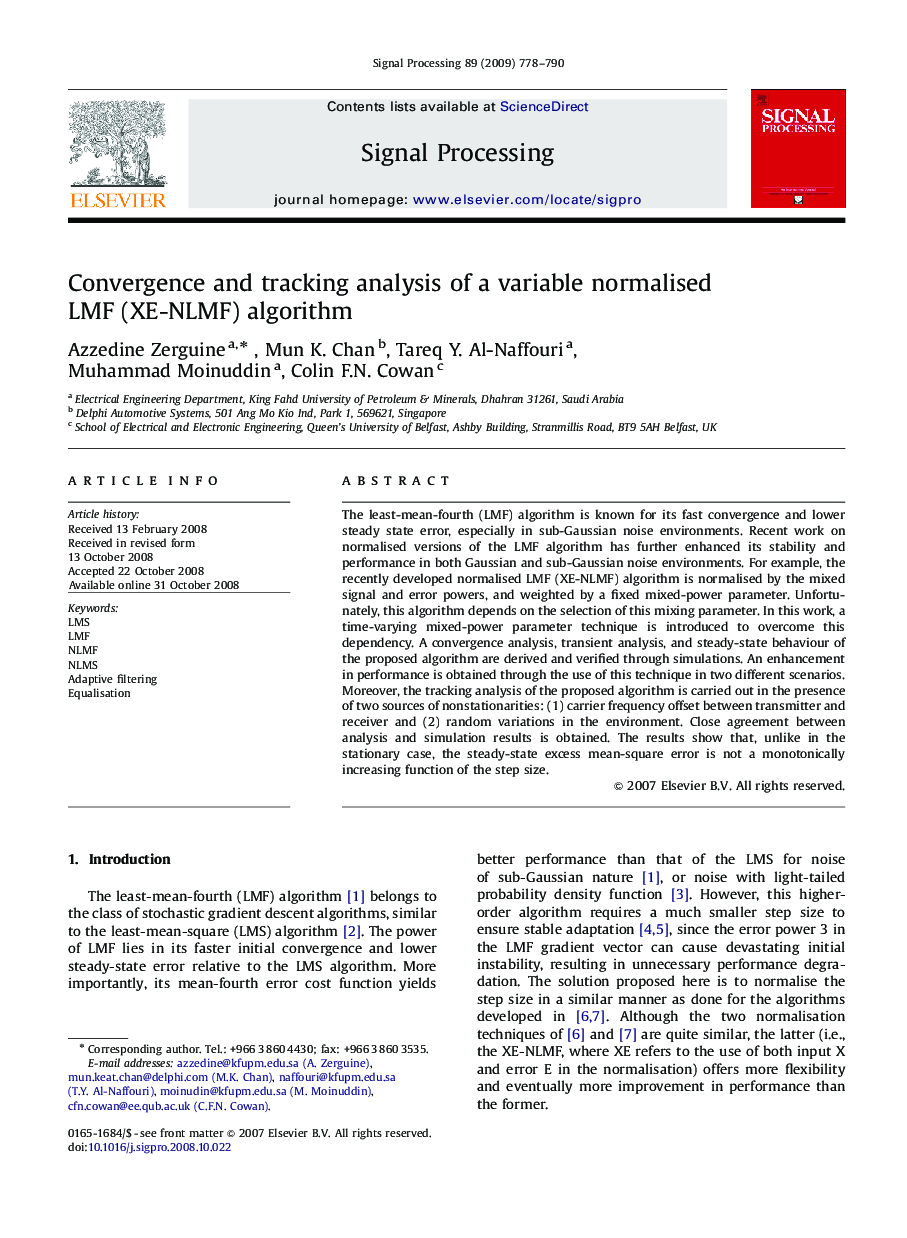| Article ID | Journal | Published Year | Pages | File Type |
|---|---|---|---|---|
| 564543 | Signal Processing | 2009 | 13 Pages |
The least-mean-fourth (LMF) algorithm is known for its fast convergence and lower steady state error, especially in sub-Gaussian noise environments. Recent work on normalised versions of the LMF algorithm has further enhanced its stability and performance in both Gaussian and sub-Gaussian noise environments. For example, the recently developed normalised LMF (XE-NLMF) algorithm is normalised by the mixed signal and error powers, and weighted by a fixed mixed-power parameter. Unfortunately, this algorithm depends on the selection of this mixing parameter. In this work, a time-varying mixed-power parameter technique is introduced to overcome this dependency. A convergence analysis, transient analysis, and steady-state behaviour of the proposed algorithm are derived and verified through simulations. An enhancement in performance is obtained through the use of this technique in two different scenarios. Moreover, the tracking analysis of the proposed algorithm is carried out in the presence of two sources of nonstationarities: (1) carrier frequency offset between transmitter and receiver and (2) random variations in the environment. Close agreement between analysis and simulation results is obtained. The results show that, unlike in the stationary case, the steady-state excess mean-square error is not a monotonically increasing function of the step size.
